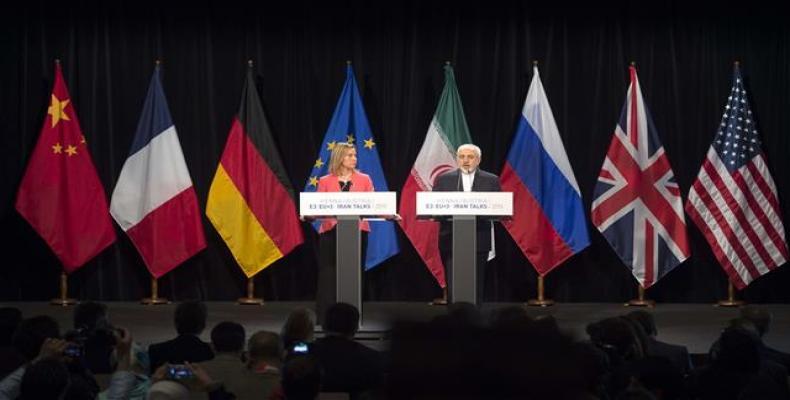Vienna, July 14 (RHC)-- Well over a decade of negotiations on Iran’s civilian nuclear program have finally reached a conclusion, with the Islamic Republic and its latest interlocutors, the P5+1, sealing an agreement.
The hitherto elusive agreement was finally nailed down on Tuesday in the ritzy Palais Coburg Hotel in the Austrian capital of Vienna, where negotiators from Iran and the six other countries had recently been spending over two weeks to work out the remaining technical and political issues.
The agreement, the Joint Comprehensive Plan of Action (JCPOA), will, according to Iranian officials, be presented to the United Nations Security Council (UNSC), which will adopt a resolution in seven to 10 days making the JCPOA an official document.
Based on the agreement, which has been concluded with due regard for Iran’s red lines and is considered a nuclear achievement for the country, the world powers recognize Iran’s civilian nuclear program, including the country’s right to the complete nuclear cycle.
The UNSC sanctions against the Islamic Republic, including all economic and financial bans, will be lifted at once under a mutually agreed framework and through a new UN resolution. None of the Iranian nuclear facilities will be dismantled or decomissioned.
Furthermore, nuclear research and development activities on all types of centrifuges, including advanced IR-6 and IR-8 machines, will Continue.
The nuclear-related economic and financial restrictions imposed by the United States and the European Union (EU) targeting the Iranian banking, financial, oil, gas, petrochemical, trade, insurance and transport sectors will at once be annulled with the beginning of the implementation of the agreement.
Additionally, tens of billions of dollars in Iranian revenue frozen in foreign banks will be unblocked.


